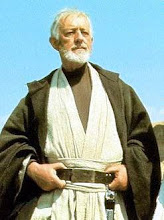In Verse 16 he says that the Gentiles that were gone forth out of captivity had the power of the Lord with them. This is definitely something that you want on your side when you do anything.
The Gentiles were in captivity. They were controlled in everything. Here is a quote from the Book of Mormon Institute manual on this topic:
“There are expressions in this part of the prophecy that on the surface seem to have little importance but that are of great significance. For example, Nephi says these colonists fled ‘out of captivity’ as they came to the New World. Did they really ‘flee out of captivity’? How did Nephi know that?
“When it is realized how despotic the European kings were at this period, it is easily understood that the colonists did indeed flee from captivity and oppression. Under such kings as James I of England, there was hardly a semblance of freedom. He was the supreme dictator in government, in economics, in education (what there was of it), and in the state religion. He controlled the detailed lives of his people.
“France, Spain, England, and Portugal were the principal powers involved in the discovery and exploration of America, and this is significant, as we shall point out later. All were ruled by despots, and when immigrants finally were allowed to leave the ‘mother countries,’ they indeed fled from captivity. The history of the Pilgrims and Puritans gives ample evidence of this fact” (Petersen, Great Prologue, pp. 32–33).
Verse 17 said that Nephi sees that the mother Gentiles were gathered together on water and on land and gave battle against those that had gone forth out of captivity. This is referring to the Revolutionary War. In the next verse, Nephi is told that the Lord was with the new nation and His wrath was against all those who went to battle against them. In the next verse, it says that they were delivered out of the hands of all those who battled them. This is a marvelous blessing. The fact that we are free today is all due to the Lord and hard work and sacrifices of the people. It is neat to know that Nephi saw a lot of our recent history, and we were blessed to know about it. The details of some of these visions are not made known to us, but this one is, up to our day.
I wanted to finish with a thought about our freedom. There are a couple of places where the Book of Mormon admonishes us to be righteous. If we are not righteous, we will lose this freedom. In Ether 2:12, it says: "Behold, this is a choice land, and whatsoever nation shall possess it shall be free from bondage, and from captivity, and from all other nations under heaven, if they will but serve the God of the land, who is Jesus Christ, who hath been manifested by the things which we have written." In 2 Nephi 1:5-7, it says:
"5 But, said he, notwithstanding our afflictions, we have obtained a land of promise, a land which is choice above all other lands; a land which the Lord God hath covenanted with me should be a land for the inheritance of my seed. Yea, the Lord hath covenanted this land unto me, and to my children forever, and also all those who should be led out of other countries by the hand of the Lord.
" 6 Wherefore, I, Lehi, prophesy according to the workings of the Spirit which is in me, that there shall none come into this land save they shall be brought by the hand of the Lord.
" 7 Wherefore, this land is consecrated unto him whom he shall bring. And if it so be that they shall serve him according to the commandments which he hath given, it shall be a land of liberty unto them; wherefore, they shall never be brought down into captivity; if so, it shall be because of iniquity; for if iniquity shall abound cursed shall be the land for their sakes, but unto the righteous it shall be blessed forever."
So, this land is choice unto the Nephites and Lamanites and all those who are led to it. We were led to it at this time in the vision of Nephi. We fall under the same obligation. Let us be righteous and deserve the blessing to live on this land.
